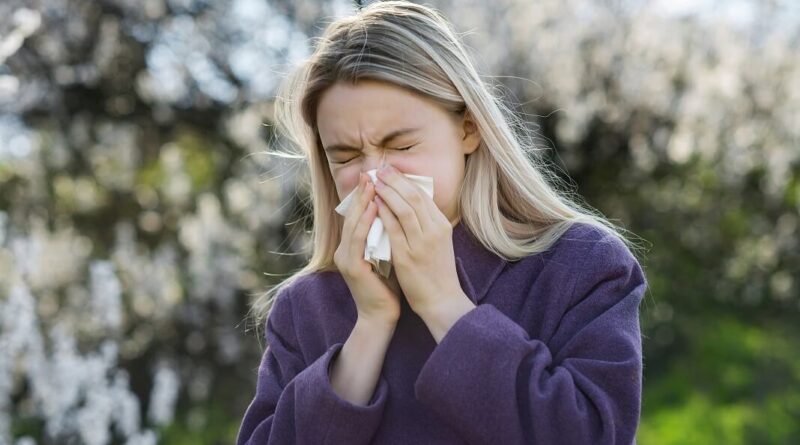9 Natural Home Remedies for Allergies
Allergies are considered a very prevalent problem, affecting approximately 30% adults and 40% kids in the U.S itself. The exact number of Americans affected each year is over 50 million. But the fact is that allergies are not minor problems but a chronic condition affecting a lot of people. Allergies occur when the immune system of your body mistakes a harmless thing as a potential danger and reacts to it.
The immune system releases antibodies which result in the release of various chemicals from the cells of your body. There are various causes which result in different symptoms in individuals. So there is a need to deal with allergies in a scientific, logical, and practical way. If you have any allergy, you would be happy to know that there are many home remedies for allergies.
Table of Contents
Home Remedies for Allergies
1. Saline Nasal Irrigation
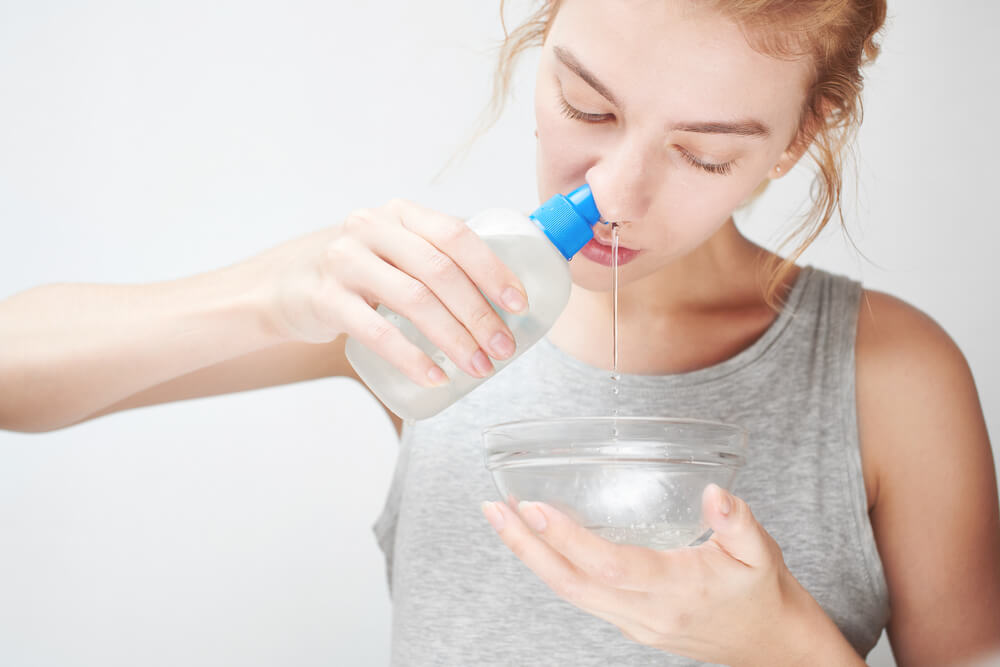
Why Do It?
In simple terms, Saline Nasal Irrigation means rinsing your nose with salt water. When you rinse your nasal cavity with the salt water, it softens and cleans the mucus in your nose. While cleaning your nasal cavity, it also helps in removing any small allergen present there. This treatment is affordable and safe. According to a 2012 review including 10 studies, Saline Nasal Irrigation has benefitted adults and kids suffering from allergic rhinitis.
How to Do It?
This procedure can be done by using sprays, squirt bottles, or pumps. You could either buy a rinse kit or make one yourself using a nasal bulb. To prepare the mix, add 1 teaspoon of baking soda to 3 teaspoons of iodide-free salt and store it in an airtight container. When you want to use it take, 1 teaspoon of this mixture in 8 ounces of distilled water. You could also use cooled boiled water. Bend over the sink and gently rinse each nostril.
How Much to Do?
Though it is one of the best home remedies for allergies, you should be careful about its use. Initially, when your symptoms are too strong, you could do this once daily. Later, when you feel your allergy symptoms have reduced, you could do it thrice in a week.
Also Read: What Are The Common Causes of Skin Allergies?
2. Butterbur
Why Take It?
Butterbur is also known as Petasites hybridus(1). It is a herb whose leaves, bulb, and roots are used to make medicines. It has several curative properties and benefits your health. It has been in use for medicinal purposes in parts of Asia, Europe, and North America since long. Butterbur tea for allergies is believed to be effective.
How to Take It?
Butterbur for allergies can be taken as a pill, as an oil and as a tea for allergies. Research has suggested that Ze 339, a butterbur extract might be as beneficial as any antihistamine pills. According to a 2003 review, butterbur is said to benefit as an antihistamine which can be taken orally. Further, the research has stated its benefit for itchy eyes.
How Much to Take?
The recommended dose for each day is less than 1 microgram. Butterbur belongs to the ragweed plant family so if you are allergic to this, do not use butterbur.
3. Acupuncture
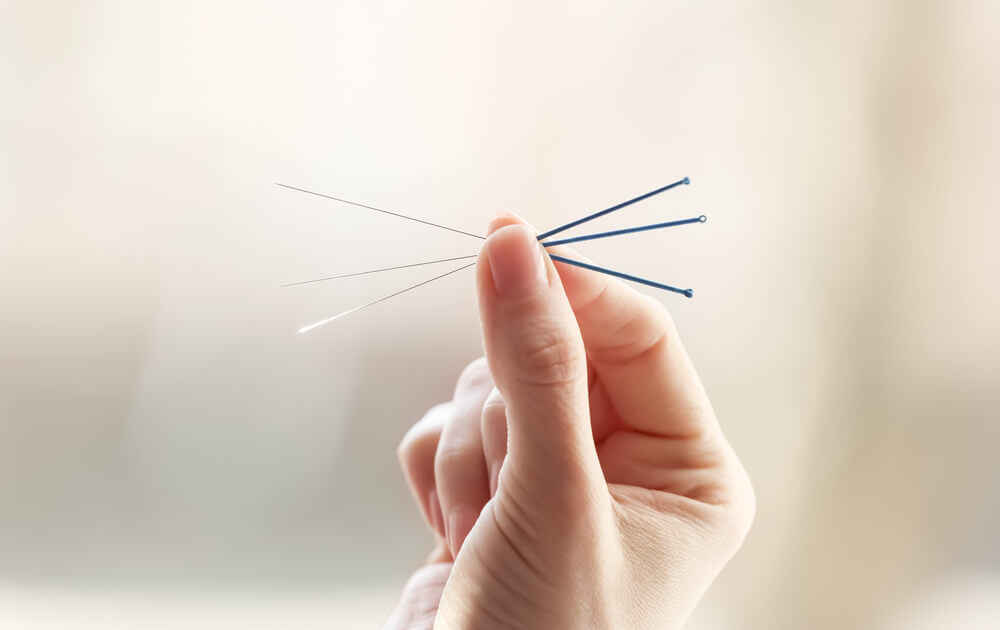
Why Do It?
Acupuncture is an ancient technique of treatment which involves inserting needles in acupoints. These have an effect on the immune system and helps counter allergies. According to a review done in the year 2015, which considers 13 studies, acupuncture benefits those who suffer from seasonal as well as perennial allergic rhinitis. You could also, practice acupressure as one of the home remedies for allergies.
How to Do It?
Both acupuncture(2) and acupressure help to relieve allergies using the 14 “acupoints” in our body. It is best to take the help of an expert when it comes to acupuncture, which involves needles. Acupressure, on the other hand, is simple and easy which can be practiced by anyone at home. However, you should know how to do it.
How Much to Do?
You should start acupuncture at least a month before your estimated allergic reactions. There are some very simple acupressure exercises of 6 -10 minutes, which can be done at home easily.
Also Read: Types of skin spots and their causes
4. Get Protected from Unhealthy Air
Why Do It?
Air is necessary for life. But the air that we breathe should be as pure as possible. Many small particles that are carried by air. Many allergies are caused by these particles like dust, pollen, etc. There is a need to counter these airborne allergens. No matter clean your surroundings may seem, you still need to protect yourself from allergies from air particles.
How to Do It?
Keep the doors and windows of your house shut during breezy days. You could get a HEPA filter installed on the air conditioner. You could also get a filter installed on the furnace. These filters stop the airborne irritants like dust particles, pollen and pet dander, from entering indoors. The main idea is to obstruct the flow of allergens, which travel through the air straight into your home.
How Much to Do?
One of the first home remedies for allergies is to keep your doors and windows shut to avoid breezes, especially during the flowering season. No matter how much you enjoy the breeze, it is most likely to cause you allergy owing to a lot of dust particles and pollen.
5. Stay Clean
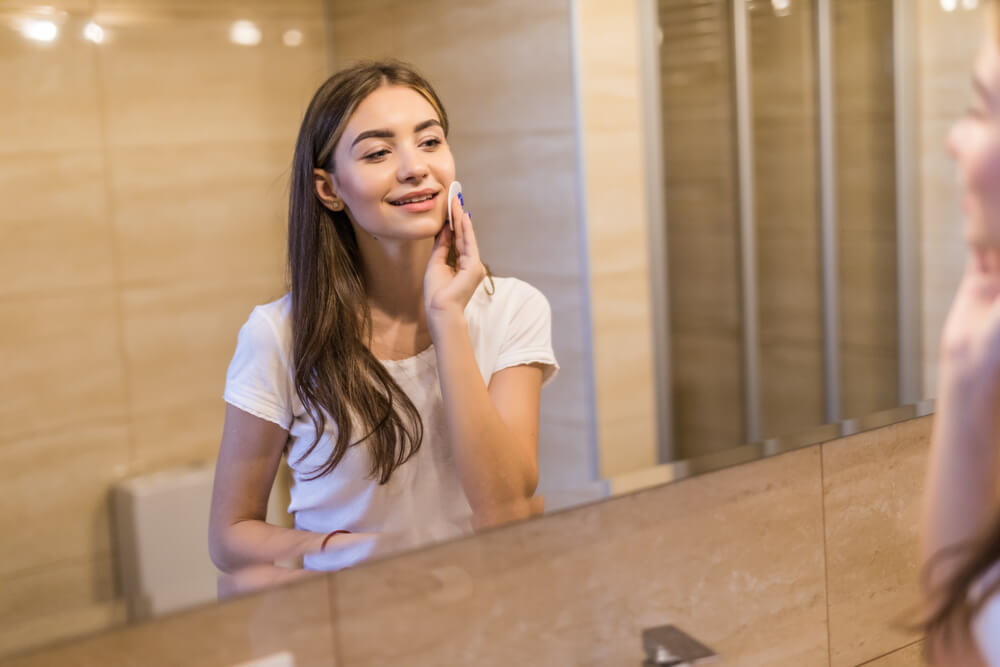
Why Do It?
When you are thinking about home remedies for allergies, you first need to keep yourself and your home clean. Whenever you go outdoors, you bring home a lot of germs with you. Also, it is strange, but strong chemicals in various cleaners available in the market may also cause allergy. So make one at home using accessible ingredients like baking soda and vinegar.
How to do?
Firstly, when you enter your home, leave your shoes on the rack and take a shower. Choose natural things whenever possible. You should opt for homemade cleaners, hot water for keeping your home germ free. Please avoid carpets and pets inside your house. Use a vacuum cleaner with a HEPA filter. Using air conditioners and dehumidifiers can also help to reduce allergens indoors.
How Much to Do?
No matter how much you try, it is impossible to make your home 100% germ-free. What you could do is avoid things that may welcome allergens in your home. Also, you should ensure that you don’t take home allergens with you. You could minimize germs in your home by cleaning things like air filters, conditioners, etc., after each season.
6. Wear a Mask
Why Do It?
Air naturally is a carrier for a lot of light and loose material. Depending on the intensity, it can carry a range of particles. It is not always possible for you to stay indoors and away from allergens. So its best you wear a mask as a precautionary measure against allergens.
How to Do It?
You could buy an N95 respiratory mask which is readily available in drugstores. It blocks 95% tiny particles which act as triggers including pollen. You could use this mask whenever you are cleaning or when you feel you can come in contact with an airborne allergen.
When to Do It?
When working with a vacuum cleaner or cleaning your garden, it is best to use a mask. Allergens could be anywhere. You know your allergy triggers, so wear a mask when you perceive such possible triggers.
7. Eat Healthily

Why to Eat?
A healthy diet is essential if you want to stay away from illness. Fruits, vegetables, and nuts are a must in our daily diet. Is honey good for allergies? The fact is honey for allergies is believed to be quite beneficial. It is said that if you eat locally produced honey, it increases your immunity to pollen. Honey is the perfect cure for seasonal allergies.
How to Eat?
Including fruits, vegetables, nuts like grapes, apples, tomatoes, and oranges in your daily diet works as one of the home remedies for allergies. Consume honey directly, or you could add it to your tea, with toast. You could benefit immensely from honey for allergies, remember not to cook or bake with it.
How Much to Eat?
Include one veggie and one fruit in each meal. Now the question is how much honey for allergies? You will have to let your body get used to honey. So, take only a tablespoon of it in a day.
8. Drink Fluids
Why Drink Them?
You should include a lot of fluids in your diet as a home remedy for allergies. Fluids help to soften mucus and also help to relieve us. You should drink a lot of water, juices and various non-alcoholic drinks. There are many types of tea for allergies. For example, green tea, butterbur tea, stinging nettle tea are the name of a few types of tea for allergies. It is beneficial to take apple cider vinegar for allergies as it is believed to boost our immunity.
How to Drink?
When drinking tea for allergies, it is best to opt for teapot or diffuser containing herbs. Juices and warm soups should be part of the everyday diet.
How much to drink?
There is no fixed amount as to how much juice and soup to take every day. Take an amount good enough for you. You could use apple cider vinegar for allergies by taking a teaspoon of it with water and lemon juice thrice a day. As for tea, you could sip 2-3 cups of green tea in a day.
9. Steam
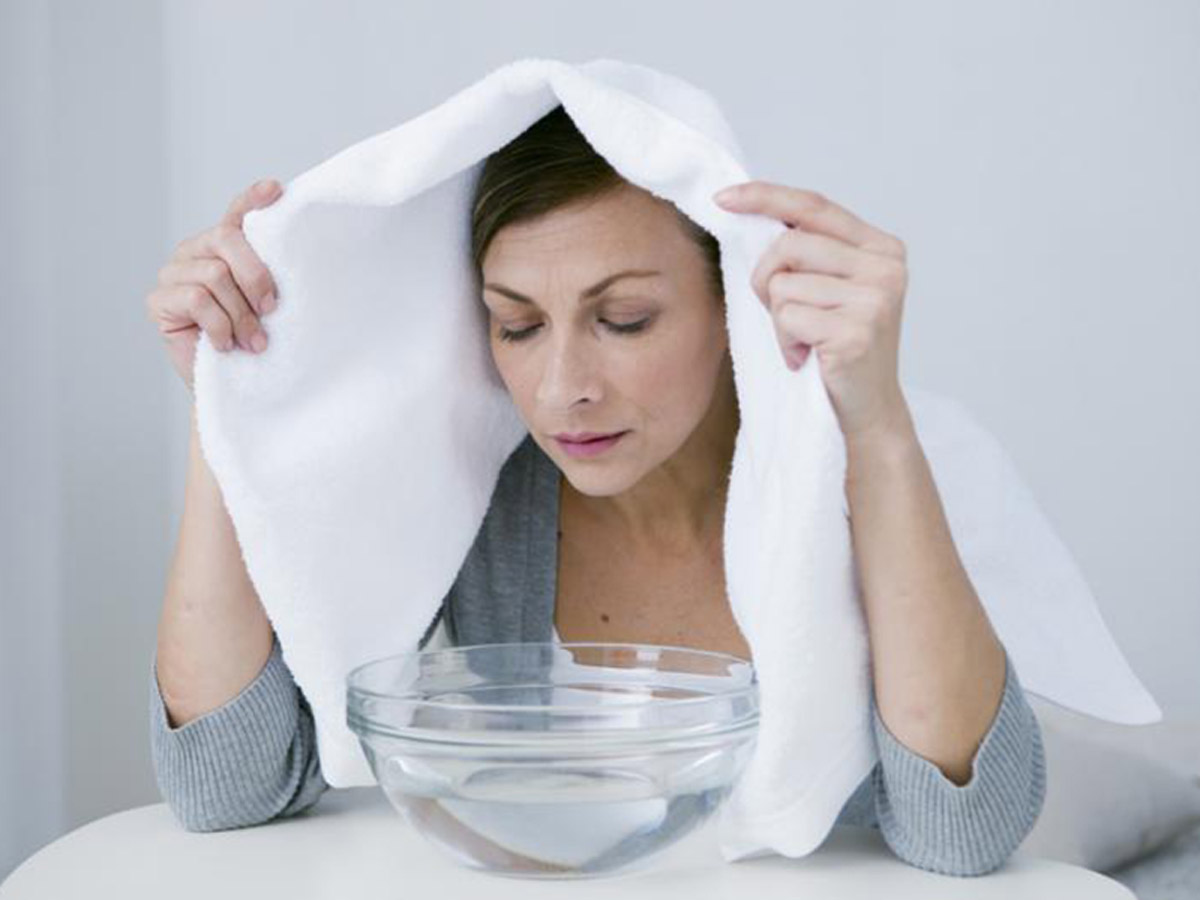
Why Take It?
Inhaling steam is one of the most natural home remedies for allergies. You need hot water and a towel for this. So it is quite simple and useful in relieving nasal congestion.
How to Take It?
You need to boil water. Pour this warm water in a bowl or a saucepan. You could add some essential oils if you wish to. Now bend over the bowl, ensuring your face feels the steam. Cover your head with a towel to stop the steam from escaping. Remember the temperature should not be too hot but you should feel the steam on your face. Alternatively, you could use a hot shower in the bathroom.
How Much to Take?
You should take steam for around 5-10 minutes, which can be done 1-3 times a day. Remember you should inhale the steam deeply for those 5-10 minutes. You could also add 2 to 3 drops to the hot water of any essential oil available in the market like eucalyptus, rosemary, etc.
Little knowledge is dangerous. You must get a thorough allergy test done. These allergy tests conducted by the allergist will help you know the things that act as triggers. You should be completely aware of the various allergens that act as triggers so that you could either avoid it or take necessary precautions. It is always better to choose natural home remedies for allergies instead of taking medicines regularly. But consult a physician before adhering to this regime.
Also Read: How to Get Rid of Allergies Naturally
FAQs
1. What Are the Causes of Allergies?
Different individuals are allergic to different things. Generally, allergies are caused by dust particles, pollen, insects, pet dander, and even medications. It is crucial to find out what triggers an allergy in a particular person. Then only you could choose the best home remedies for allergies.
2. What Are the Symptoms of Allergies?
The symptoms of allergies vary from simple sneezing to even life-threatening situations. Some common symptoms observed in people with allergy are itching, sneezing, running nose, swelling, rashes, and asthma.
3. What Home Remedies Are Most Effective for Allergies?
There are various home remedies for allergies. Few of the most effective ones are apple cider vinegar, honey, nasal saline irrigation, butterbur, tea, coconut oil for allergies. It is best to consult a doctor to get a full analysis of your allergies, get allergy test conducted and, then follow these home remedies for allergies.

